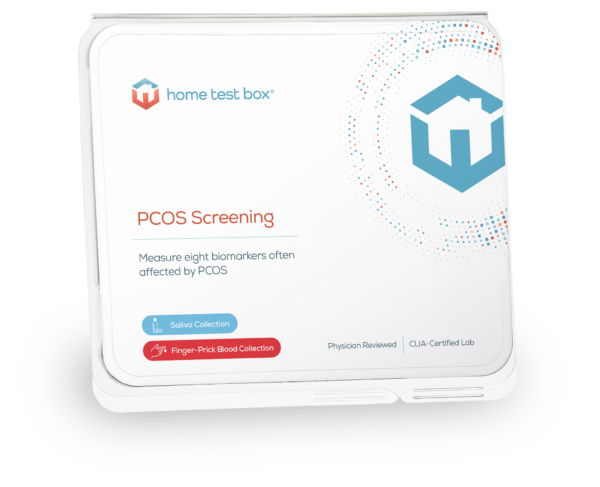PCOS is one of the most common hormonal disorders among women of reproductive age, impacting millions worldwide. It’s a journey that brings many questions, uncertainties, and daily struggles, ranging from acne and weight gain to more pressing concerns like irregular periods and fertility issues.
Amid the complexities of PCOS, many women are turning to a natural supplement named inositol to help manage their symptoms.
Today, we will explore the relationship between PCOS and inositol. We will also see how it fits into the bigger picture of PCOS management.
What is inositol?
Let’s start with the basics.
Inositol – what is it?
Inositol is a type of sugar that plays a crucial role in the functions of your body’s cells. It’s a star player in the cell-signaling process.
Think of your body as a busy city and your cells as people going about their daily lives.
For the city to run smoothly, everyone needs to communicate.
That’s where inositol steps in.
Inositol works like a cellular mail carrier, delivering important messages that help regulate insulin and other hormones. It ensures the right messages reach the right places at the right time, keeping the city in harmony.
Understanding the Relationship Between PCOS and Inositol
Now that we have a basic understanding of inositol let’s talk about why it matters in the context of PCOS.
One of the primary issues many women with PCOS face is insulin resistance.
Our bodies aren’t great at using insulin, a hormone responsible for controlling blood sugar levels. This can lead to a chain reaction of hormonal imbalances – a little like causing traffic jams in our body’s city.
This is where our inositol steps in.
Given its role in hormone regulation, particularly with insulin, supplementing with inositol can help improve our bodies’ insulin sensitivity. In turn, it can help reduce those hormonal “traffic jams.”
This process may ease some symptoms associated with PCOS. This is why inositol has gained so much attention in the PCOS community.
But how effective is it?
And what does the science say?
Current Research on PCOS and Inositol
Over the years, many studies have analyzed the effect of inositol on PCOS symptoms. And the results are promising.
One study found that women taking inositol had improved insulin sensitivity and hormone levels. Concurrently, many hallmark PCOS symptoms, such as irregular menstrual cycles and weight loss challenges, lessened.
Another study showed promising results on fertility. Women with PCOS struggling with infertility and taking inositol showed improved ovulatory function and egg quality, leading to better chances of conception.
While these results are encouraging, there are gaps in the research.
We need more long-term studies and investigations into how inositol interacts with other treatments.
How Inositol Can Affect PCOS Symptoms
If you’re considering incorporating inositol into your PCOS treatment plan, you’re probably wondering how it can affect your symptoms.
Here are a few ways it can help:
-
- Menstrual cycle regulation. Many women with PCOS struggle with irregular periods. Not only is it inconvenient, but it can lead to further hormonal imbalances and fertility issues. Research shows that inositol can help regulate menstrual cycles.
- Weight maintenance. Inositol can improve insulin sensitivity and curb intense cravings, aiding in weight loss efforts.
- Fertility. If you’re trying to conceive, inositol might be beneficial. It’s shown to improve ovulatory function and egg quality, boosting fertility in women with PCOS.
- Skin and hair improvement. PCOS often comes with unwanted hair growth and skin problems like acne. By helping balance hormones, inositol may also ease some of these skin issues.
Inositol has also been shown to help women with PCOS reduce cholesterol, ease inflammation, and lower the risk of gestational diabetes.
Everyone’s experience with PCOS is unique, and inositol’s effects will vary.
Types of Inositol and Their Benefits
There are 9 types of inositol, but two have been highlighted in PCOS research: Myo-inositol and D-chiro-inositol.
Myo-Inositol
This is the most common form of inositol found in the body. It plays a significant role in insulin signaling, which is crucial for those with insulin resistance often seen in PCOS. Many of the studies on inositol and PCOS focus on myo-inositol.
D-Chiro-Inositol
This form of inositol is converted from myo-inositol in your body. Some research suggests that women with PCOS might have an imbalance in their body’s conversion of myo-inositol to D-chiro-inositol. This led to the belief that supplementing with D-chiro-inositol might be beneficial.
While both types have demonstrated benefits for PCOS, the research on whether one is superior to the other is inconclusive. Some studies suggest a combination of the two might provide the most benefits.
As always, it’s best to consult a healthcare provider to determine the right balance for your unique needs.
Incorporating Inositol into Your PCOS Management Plan
Adding inositol to your PCOS management plan is relatively simple. Various supplements are available in capsule or powder form and are generally safe and well-tolerated.
The recommended dose is usually between 2 to 4 grams daily, but your healthcare provider can help determine the best dosage for your needs.
Foods rich in inositol, like fruits, beans, grains, and nuts, can complement supplementation. But it’s important to note that dietary inositol may not provide the same level of benefits as supplementation because the concentrations in foods are typically lower.
Potential Side Effects from Inositol
While inositol is generally considered safe, it’s not without potential side effects. Some people report mild side effects like nausea, gas, difficulty sleeping, or headaches.
And like any supplement, it can interact with other medications or supplements you’re taking.
Inositol is just one tool for PCOS symptom management. Your best strategy for managing PCOS will involve lifestyle changes, nutritional adjustments, exercise, and possibly other supplements or medications as advised by your healthcare provider.

Consult with a Healthcare Professional
Research about inositol continues to unfold, and its promise for symptom relief and improved quality of life is encouraging.
While educating yourself and taking charge of your health is empowering, it’s crucial to involve healthcare professionals in your journey. They bring a wealth of knowledge and experience to help you navigate the nuances of managing PCOS.
Before you start any new supplement, including inositol, make sure to consult with your healthcare provider. They can help you understand the potential benefits, side effects, and interactions with other treatments you’re using. They can also help monitor your progress and adjust your treatment plan.






